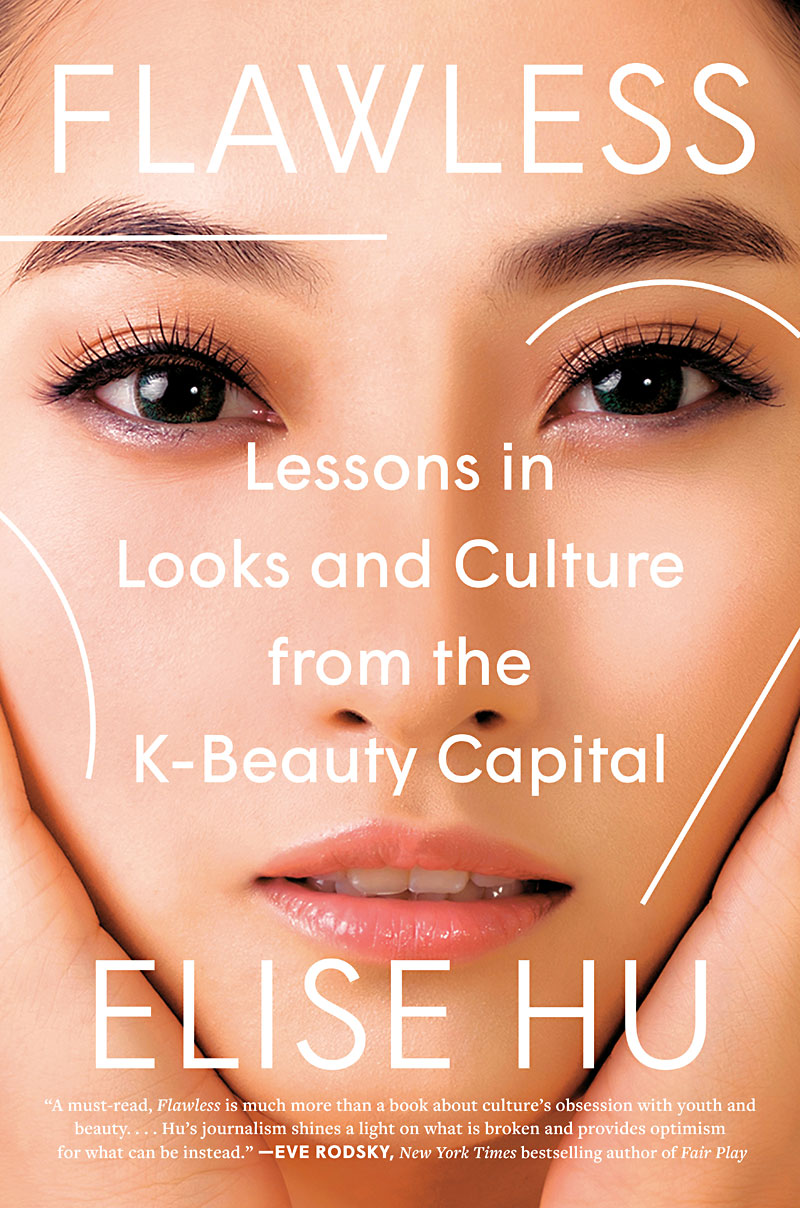Elise Hu Unpacks the K-Beauty Industry in Her New Book, Flawless
The former KVUE reporter and NPR bureau chief explores how algorithms are shaping South Korean society
By Jasmine Lane, Fri., June 30, 2023
We live in a world of intersections. Look to any structure – be it ecological, institutional, social – and the same conclusion inevitably presents itself. Journalist and podcaster Elise Hu, author of Flawless: Lessons in Looks and Culture From the K-Beauty Capital, illustrates that fact with incisive clarity in her treatise on South Korea's chief export: beauty.
"I think that my coming up as a political reporter really informed how this book turned out," says Hu, who became a household name in Austin covering the Texas Legislature for KVUE and The Texas Tribune. "We're in this moment in which there's lots of debates about bodily autonomy for women, but also for LGBTQ [people], and I hope that readers will come away seeing how all of these issues intersect because this is about ... being safe in our own bodies, and that cuts across so many political and social issues of our time."
As the first-ever Korea & Japan bureau chief for NPR, serving in the role from 2014 to 2018, Hu arrived in Seoul as the blossoming market of K-beauty (a shorthand reference to the South Korean beauty industry) mushroomed into a global phenomenon. But despite the industry's immense influence and cultural omnipresence, Hu writes, English-language texts about modern-day Korea – most of them written by white men – let it remain overlooked and unquestioned.
"South Korea is a society where appearances matter more than they do in the United States," she said. "It is tied into your professional prospects and your personal prospects, because headshots are required on résumés, because your parents encourage you to get cosmetic surgeries so that you can do better in the labor market and get into tough schools. ... It's a hypercompetitive landscape." Furthermore, every interaction with the industry creates its own feedback loop. For example: A company fills screens and ad time with images of a particular type of face; customers continually absorb this image and internalize it as an aesthetic ideal; those customers then buy products or receive services to more closely resemble these commercial-fed images, "and so then we follow the molds that are sent to us by the algorithms." Those algorithms tell the company what's popular and what it should therefore push to its customer base, but "we're only feeding the algorithm with more content that looks like that [initial image]."
Deference to algorithms and "simple" technological solutions to complex social issues is not isolated to Korea, but it's nevertheless hyper-pervasive in the K-beauty world. In Flawless, Hu describes a multitude of high-tech devices that scan bodies for imperfections and offer comprehensive topical and surgical ways to "upgrade." Listening to her talk, human beauty pursuits take on a dystopian, sci-fi energy. The word "cyborg" quickly comes to mind.
In that vein, Hu talks about the "technological gaze," which she describes as "kind of this souped-up male gaze, in which women are performing for the eyes of men. But [here] women are performing for a machine-driven perspective, which is like what we see in our endless scrolls and ... in advertisements or in media [that] show us what is considered desirable. ... The more and more we are fed standards for what we're supposed to look like, the more we're marginalizing and creating inequality for folks who can never change their appearance to look a certain way, right? And so you're creating marginalization and isolation on one end, you're also narrowing the standard.
"And it's all tied into the pervasive problem, which is that we continue to be defined by our looks."
Flawless: Lessons in Looks and Culture From the K-Beauty Capital
by Elise HuDutton
384 pp.
$29











